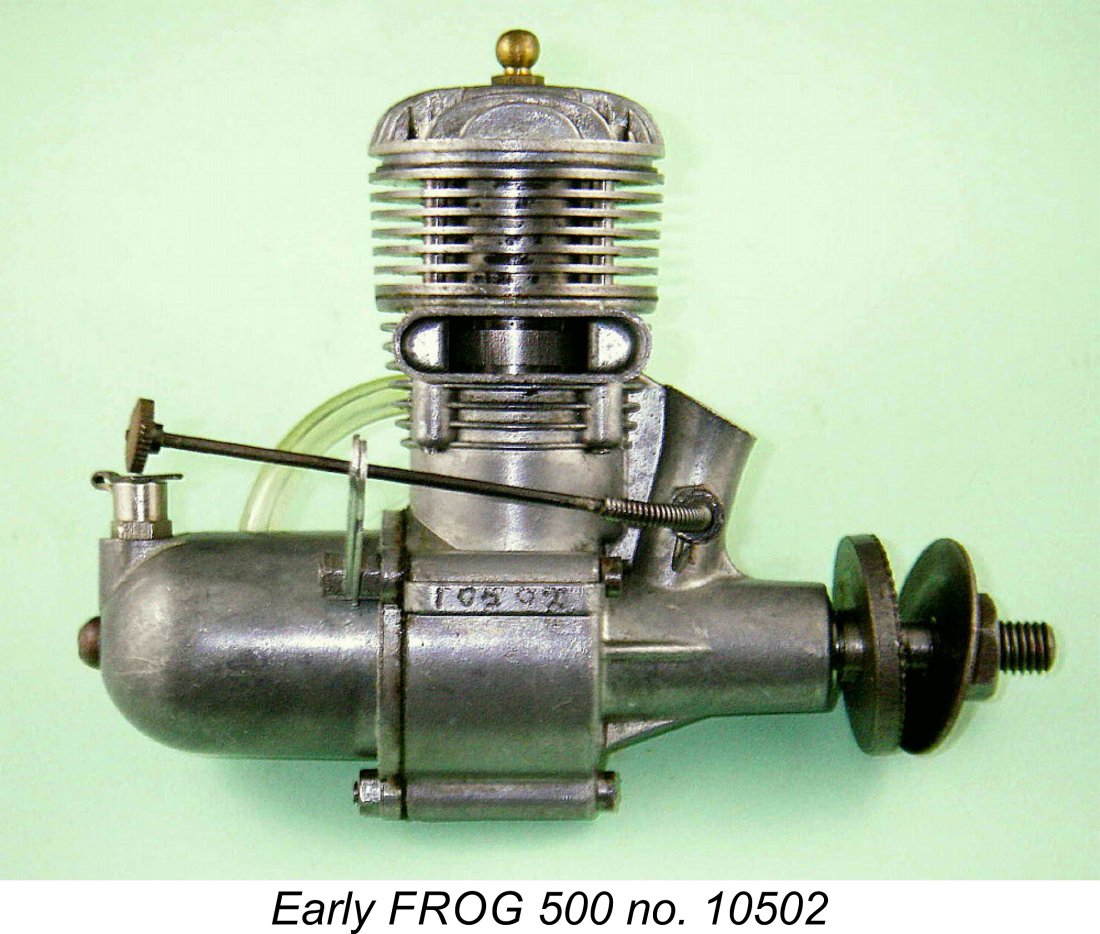
|
|
From the Editor - August 2022
Consequently, our BC wildfire season has now well and truly begun, with over 100 new fires having been started in the past week. Seven of them are currently out of control. Sadly, almost 50% of these fires were the result of irresponsible actions by persons, most of the balance being caused by lightning strikes. As recent politically-motivated actions have demonstrated, some of us have a lot to learn about responsible behaviour…………
So .......... difficult and very worrying times. For now, I’m doing my best to carry on even in the face of these deeply troubling developments, although I confess to finding it to be a growing challenge. It really does help to know that there’s still a continued interest in model engines among my valued readers - that’s what keeps me going! My statistics reporting system has now settled back to reporting far more rational visitation figures than it was doing for a while. Even so, I’m refraining from reporting the numbers here until I’m sure that what I see as an artificially-induced “bulge” has settled down. My IT guys say that the system saw these as legitimate visitors, but I really can’t believe that they were. I’m convinced that a good proportion of them must have been robot visitors on phishing trips. Hopefully a lack of remunerative success has dissuaded them from further attempts.
Alexandr has returned to his workshop and is endeavouring to continue with his production (it is his only means of earning a living) to fulfil outstanding orders despite the fact that the invading Russians are only 30 miles away and could return at any time. He is seen in the accompanying image standing in his machine shop holding a piece of the former MIG. Obviously, this unhappy event has taken a heavy toll on Alexandr’s finances. He has let it be known that he could really use some assistance in meeting the costs associated with the necessary repairs. To help out in this regard, Alex Phin of Redfin Engines has launched an appeal for him following a conversation with “AeroModeller” Editor Andrew Boddington (who immediately made a significant donation).
In my mind, the resumption of production by Alexandr would represent a small but significant victory over Putin and his thugs. Plans are already being considered for the production of some form of "Commemorative" model, perhaps using material scavenged from the offending MIG. An article that seems to have remarkably long legs is my earlier piece on the classic micro-diesels. My good mate Maris Dislers wrote in to make me aware of yet another such engine that was missing from my list - the remarkable little FMO 0.10 cc reed valve diesel of 1951. This little gem was constructed by Hermann Fricke, a German watchmaker and toolmaker who developed an interest in the construction of unusual model engines.
Maris also reported that he has been given a small collection of partially-machined castings for a mega-rare pre-WW2 English sparkie, the 0.785 cuin. (12.87 cc) EEC from Twickenham. The 1935 advertisement which is reproduced here confirms that bore and stroke were both 1 in., but those are the only relevant details provided. Note that the advertisement brags about the engine’s claimed output of 0.125 BHP @ 4,600 rpm! Given its cited "featherweight" of 1½ lbs. (680 gm), one wonders how the engine ever got a model into the air! For obvious reasons, Maris would really like to complete this engine, but requires the plans to do so. If any reader can help in this regard, please contact Maris either directly or through this website.
In their day, the Nordec engines earned a reputation as extremely well-made and sturdy powerplants which fell considerably short of delivering a true racing performance. The all-new article for this month evaluates the potential for performance enhancement of the Nordec design through appropriate modifications. This was made possible by my acquisition of a very competently-tuned example of the engine which I was able to tear down for inspection and then turn loose in the test stand. The results show that the Nordec undoubtedly had the potential to be a far better performer than it was in standard form! My English friend Alan Strutt also helped immensely by providing details of an apparent factory test unit which had been used to try the effectiveness of certain modifications.
My long-standing failure to cover the P.A.W. engines has absolutely nothing to do with any negative perceptions of the range on my part. On the contrary, I’ve been a completely satisfied P.A.W. owner and user for over 60 years now - more of my models have been powered by P.A.W.'s than by any other brand. My previous omission of any coverage of the engines was based solely on my perception that this iconic range is so well known and so familiar to model diesel engine enthusiasts that I wouldn’t be able to find anything to say that wouldn’t be “old hat” to most of my readers! However, several of my somewhat younger readers have commented recently that while I’m old enough to have “been there” when the range first came to prominence and to have been an enthusiastic user of the P.A.W. engines almost right from their introduction, others were not so favoured. To them, the early years of the P.A.W. range are just as obscure as the start-up periods of most other classic model engine marques, hence in their view fully meriting documentation. OK, fair comment! Accordingly, next month’s lead article will cover the early years of the P.A.W. range up to the mid 1960’s, by which time the basic P.A.W. design had been more The MEN transfer article will deal with another iconic British engine - the 5 cc FROG 500 which appeared in both glow-plug and spark ignition forms. This has always been among my favourite engines, providing many happy hours of control line stunt service. As with the Nordec saga and other MEN transfer topics, I view this story as well worth protecting from any potential loss as the MEN site slowly deteriorates in the absence of the opportunity to carry out any maintenance. I think that about does it for this edition. All being well, I'll be back to you with another edition on or about September 1st, 2022. Meanwhile, please accept my best wishes for continuing the process of learning to live with the now-endemic Covid threat, the pernicious effects of Putin’s war, the increasingly difficult climate and the growing societal dysfunction to get the best of what life still has to offer under present circumstances. Take care and stay well - continue to exercise discretion and trust your own informed opinions rather than those of others whose focus is entirely on themselves, not on you. Ignore them, make up your own mind based on authoritative current information and act accordingly! It’s your future and that of your kids and grandkids .……….don’t let others having conflicting agendas decide it for you and for them! Cheers, Adrian Duncan British Columbia, Canada ___________________________________ Note regarding material to be found on this site - unless specifically otherwise noted, all images and text which appear on this site are my own work, and I hereby assert my right to be recognized as the originator of this material. For the record, this material is made freely available to all upon two firm conditions:
Adrian C. Duncan British Columbia, Canada |
| |
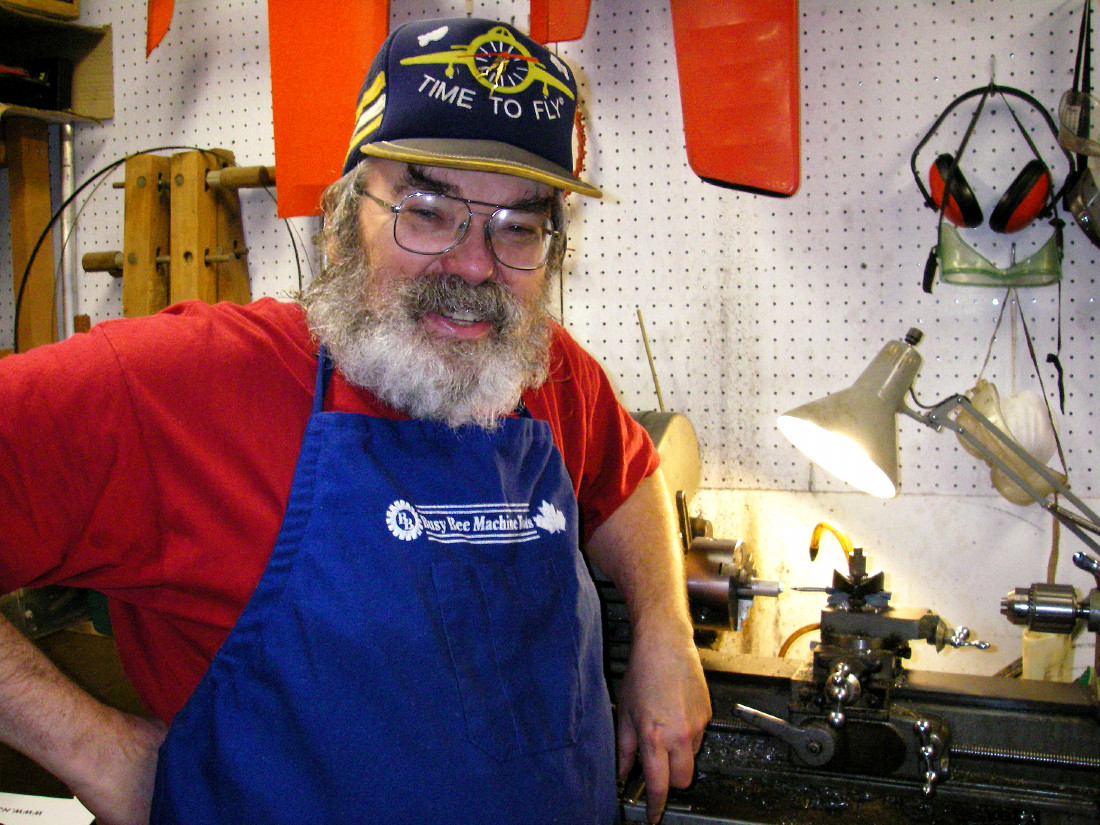 Greetings once again! Hope you’re all doing OK despite the craziness which increasingly surrounds us! Here in British Columbia on Canada’s normally Wet Coast, the weatherman spent the first half of July trying to decide between spring and summer mode. During that period, temperatures in general were a little lower than usual in July, with the odd break of sunny weather in between the periods of rain which kept us honest and reminded us where we live! However, we didn’t know when we were well off - things have warmed up seriously in the past week or two, with temperatures now trending towards unusually high figures.
Greetings once again! Hope you’re all doing OK despite the craziness which increasingly surrounds us! Here in British Columbia on Canada’s normally Wet Coast, the weatherman spent the first half of July trying to decide between spring and summer mode. During that period, temperatures in general were a little lower than usual in July, with the odd break of sunny weather in between the periods of rain which kept us honest and reminded us where we live! However, we didn’t know when we were well off - things have warmed up seriously in the past week or two, with temperatures now trending towards unusually high figures.  Covid infections are sharply on the rise again in Canada thanks to the increasing predominance of the vaccine-resistant Omicron BA.5 strain, the evolution and rapid spread of which has been greatly facilitated by the continuing legions of anti-vaxers and precaution refusers. Far too few people are responding to this threat, simply saying that they’ve “had enough” (enough of what?!?) and to heck with the consequences to themselves, their families and society in general. Such selfish attitudes can only lead to a heavily compromised future. They may have “had enough” of dealing with the virus, but the virus has by no means “had enough” of dealing with them and others………………having recently seen my neighbour’s fully vaccinated teenage son hospitalised and almost dying from BA.5, and with three of my friends currently working through their own very unpleasant encounters with the virus, I’m keeping my head down.
Covid infections are sharply on the rise again in Canada thanks to the increasing predominance of the vaccine-resistant Omicron BA.5 strain, the evolution and rapid spread of which has been greatly facilitated by the continuing legions of anti-vaxers and precaution refusers. Far too few people are responding to this threat, simply saying that they’ve “had enough” (enough of what?!?) and to heck with the consequences to themselves, their families and society in general. Such selfish attitudes can only lead to a heavily compromised future. They may have “had enough” of dealing with the virus, but the virus has by no means “had enough” of dealing with them and others………………having recently seen my neighbour’s fully vaccinated teenage son hospitalised and almost dying from BA.5, and with three of my friends currently working through their own very unpleasant encounters with the virus, I’m keeping my head down. 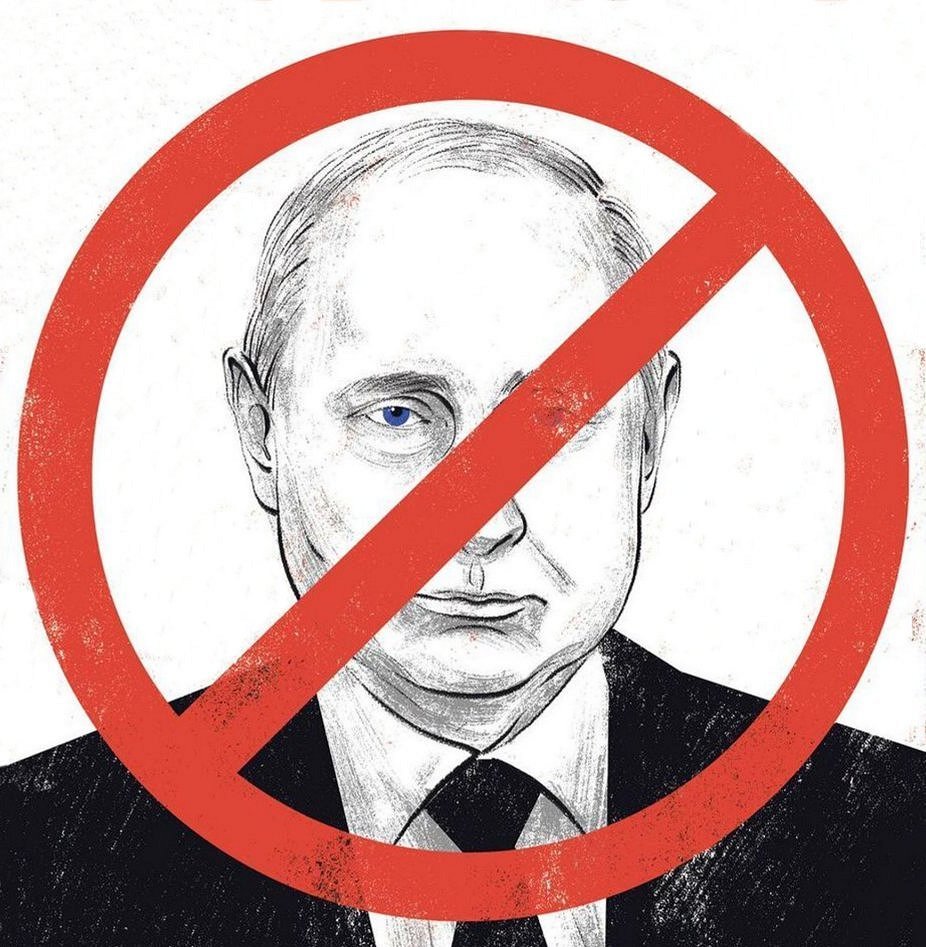 People are finally waking up to the blindingly obvious fact that the impact of Putin’s war against Ukraine together with the effects of ongoing climate change seriously threaten the global food supply. Indeed, Putin’s main goal appears to be to gain control of that supply in order to hold the rest of the world to ransom. Accordingly, this is no longer Putin’s war against Ukraine - it’s Putin’s war against all of us. Whether you know it or not, his war is directed at you, your family and your country.
People are finally waking up to the blindingly obvious fact that the impact of Putin’s war against Ukraine together with the effects of ongoing climate change seriously threaten the global food supply. Indeed, Putin’s main goal appears to be to gain control of that supply in order to hold the rest of the world to ransom. Accordingly, this is no longer Putin’s war against Ukraine - it’s Putin’s war against all of us. Whether you know it or not, his war is directed at you, your family and your country. Whatever the legitimate numbers, it appears that despite the now-endemic Covid-19 situation (including the growing threat from the rapidly-spreading Omicron BA.5 variant), the Ukrainian disaster, the unchecked trend towards climate catastrophe and the growing levels of accompanying societal dysfunction, a significant number of folks are clearly seeking an escape by remaining very much engaged with our hobby. Confirmation comes from the fact that the mail box has remained quite active. I heard from a fair number of you during July, including (in no particular order) Roger Cooper, Gordon Beeby, David Burke, Maris Dislers, Luis Petersen, Larry Davidson, Derek Butler, John Brown, Alex Phin, Ingemar Larsson, Peter Valicek, Alan Strutt, Chris Ottewell, Don Imrie, Kerri Ferguson, Barry Shaw, Bob Beaumont, Hugh Blowers, Mark Holman and Neill McRae. Apologies to anyone whom I may have inadvertently missed in the crowd, and apologies also to anyone whose message(s) went unanswered - things do slip through the cracks, especially when I’m distracted! The
Whatever the legitimate numbers, it appears that despite the now-endemic Covid-19 situation (including the growing threat from the rapidly-spreading Omicron BA.5 variant), the Ukrainian disaster, the unchecked trend towards climate catastrophe and the growing levels of accompanying societal dysfunction, a significant number of folks are clearly seeking an escape by remaining very much engaged with our hobby. Confirmation comes from the fact that the mail box has remained quite active. I heard from a fair number of you during July, including (in no particular order) Roger Cooper, Gordon Beeby, David Burke, Maris Dislers, Luis Petersen, Larry Davidson, Derek Butler, John Brown, Alex Phin, Ingemar Larsson, Peter Valicek, Alan Strutt, Chris Ottewell, Don Imrie, Kerri Ferguson, Barry Shaw, Bob Beaumont, Hugh Blowers, Mark Holman and Neill McRae. Apologies to anyone whom I may have inadvertently missed in the crowd, and apologies also to anyone whose message(s) went unanswered - things do slip through the cracks, especially when I’m distracted! The 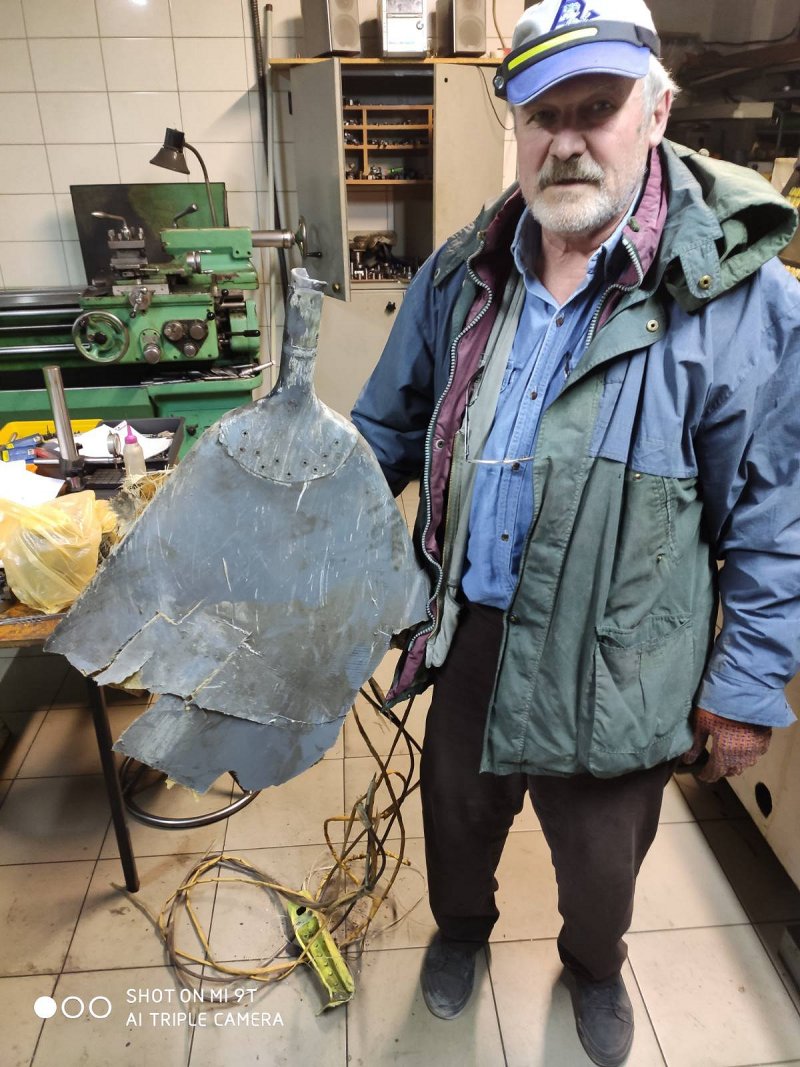 As many of you will know, the wonderful little SAM and Redfin engines have been produced to a superb standard by Alexandr Matusha of Kharkiv, Ukraine, along with the equally fine Parra motors. Sadly, Alexandr’s business has become one of the many casualties of the shameful and unjustified war currently being prosecuted by Russian dictator Vladimir Putin. Alexandr has suffered considerable damage to his factory as a result of a shot-down Russian aircraft taking out part of the building, thankfully sparing the main part of the machine shop.
As many of you will know, the wonderful little SAM and Redfin engines have been produced to a superb standard by Alexandr Matusha of Kharkiv, Ukraine, along with the equally fine Parra motors. Sadly, Alexandr’s business has become one of the many casualties of the shameful and unjustified war currently being prosecuted by Russian dictator Vladimir Putin. Alexandr has suffered considerable damage to his factory as a result of a shot-down Russian aircraft taking out part of the building, thankfully sparing the main part of the machine shop. 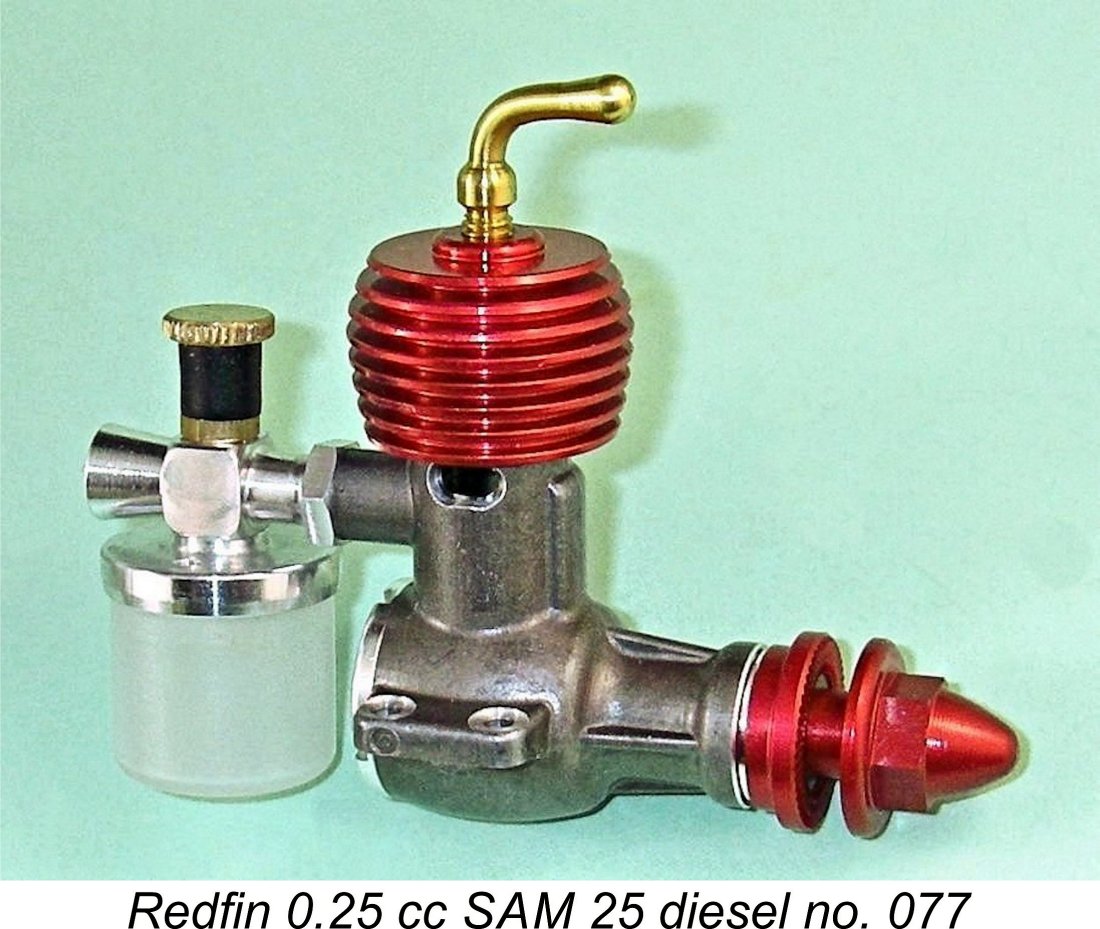 Alex realises that there’s a degree of risk in this proposal, since Putin’s invaders may return to complete “unfinished business” with Kharkiv at any time. Recognizing this, it’s been decided that the best way forward is to launch the appeal via PayPal using Alex’s
Alex realises that there’s a degree of risk in this proposal, since Putin’s invaders may return to complete “unfinished business” with Kharkiv at any time. Recognizing this, it’s been decided that the best way forward is to launch the appeal via PayPal using Alex’s 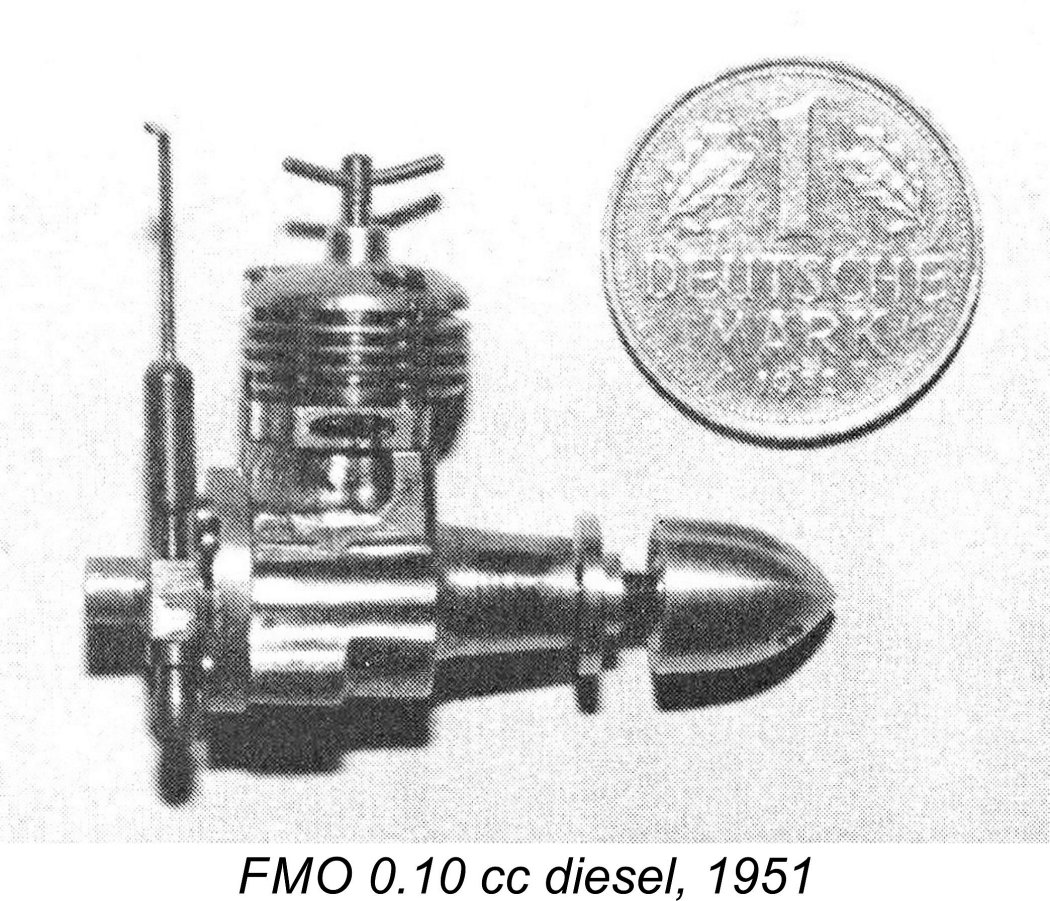 Beginning in 1951, when he was around 27 years old, Frick constructed a series of highly individualistic diesel engines, including six single-cylinder units, thirteen opposed twins, three in-line twins and one three-cylinder radial model. Fricke did all of the work himself, including making all of the dies and tooling as well as doing all of the machining. He was still active in the 1990's, producing another opposed twin and two micro radial designs. His engines were assigned the FMO trade-mark, standing for Fricke Motors.
Beginning in 1951, when he was around 27 years old, Frick constructed a series of highly individualistic diesel engines, including six single-cylinder units, thirteen opposed twins, three in-line twins and one three-cylinder radial model. Fricke did all of the work himself, including making all of the dies and tooling as well as doing all of the machining. He was still active in the 1990's, producing another opposed twin and two micro radial designs. His engines were assigned the FMO trade-mark, standing for Fricke Motors. 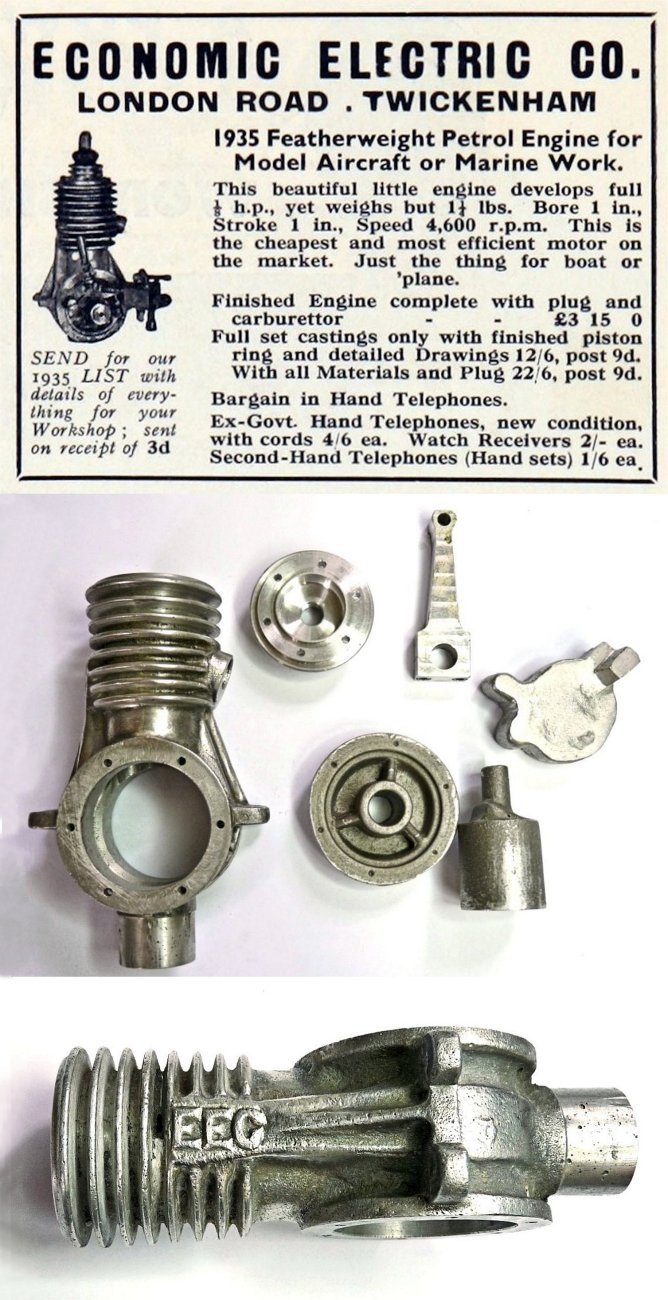
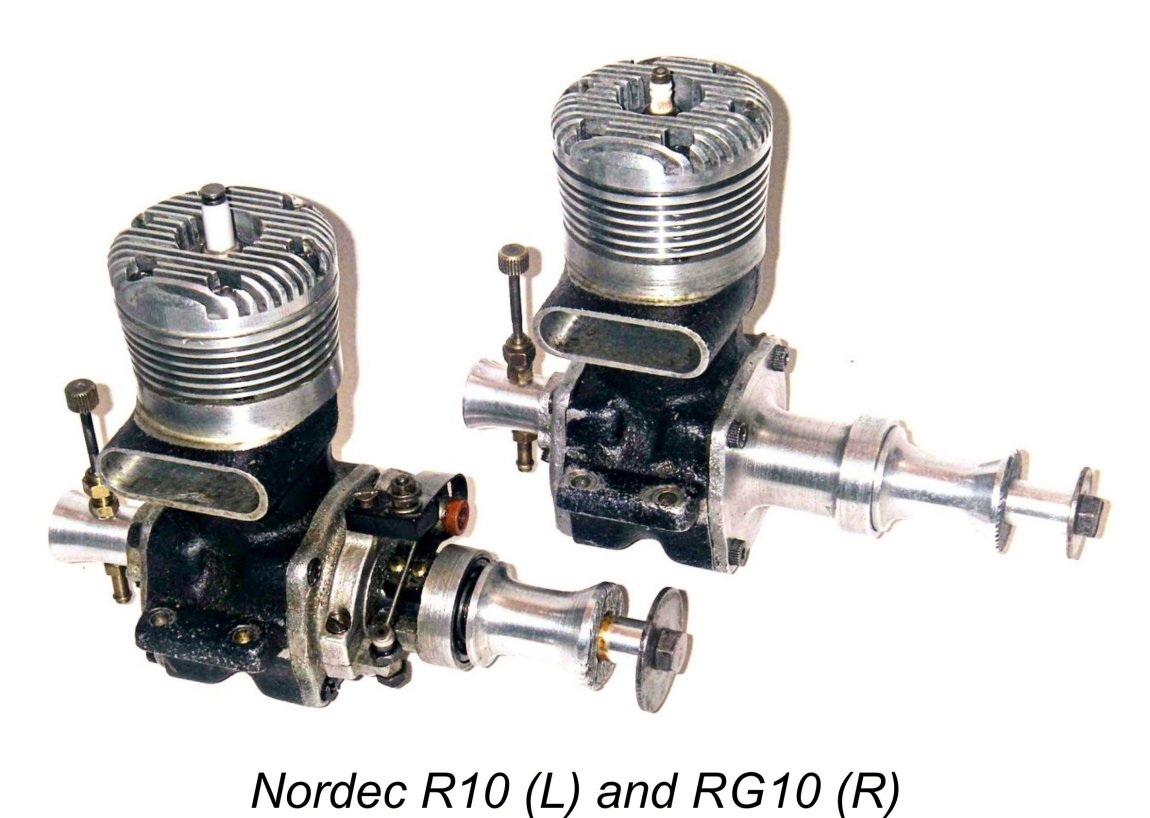 This month sees a return to my recent pattern of putting up two articles on the same subject! The MEN transfer article deals with the well-known
This month sees a return to my recent pattern of putting up two articles on the same subject! The MEN transfer article deals with the well-known 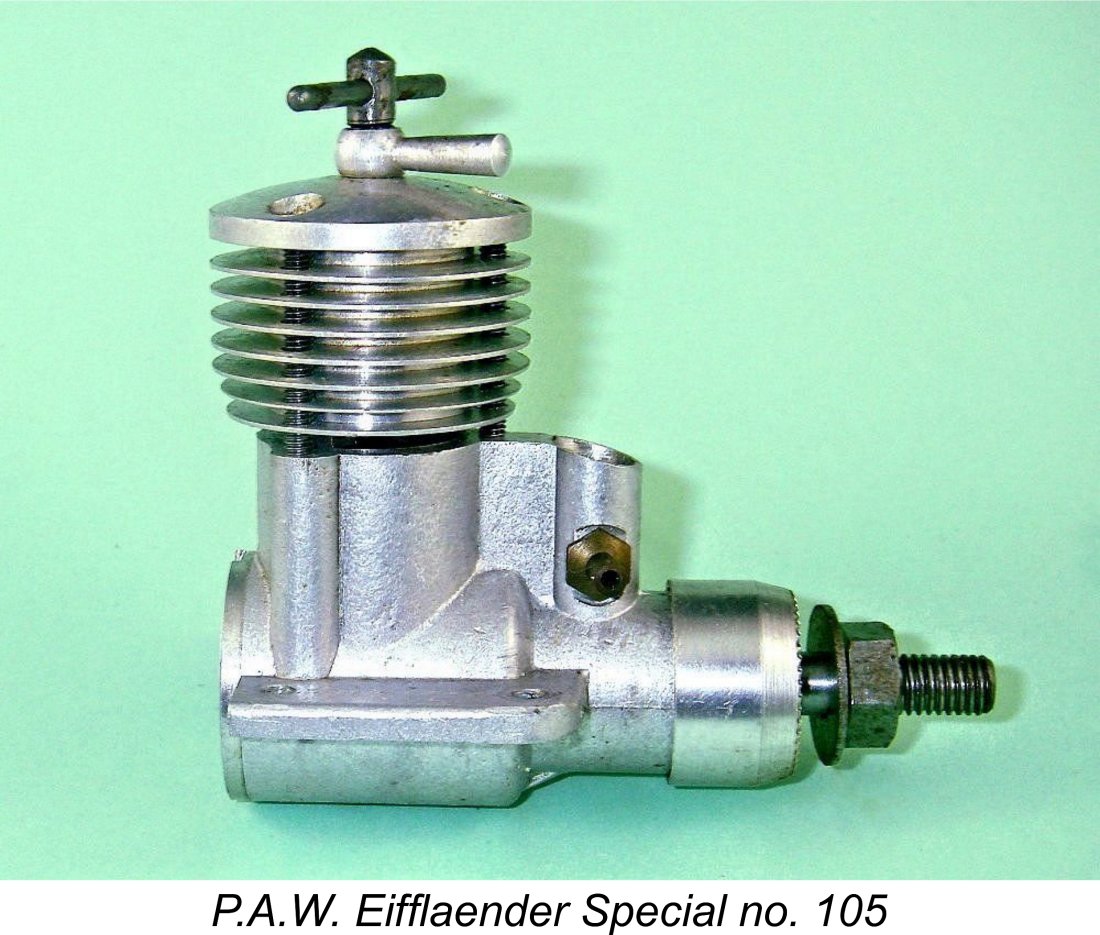 For next month, I plan to stay in England to comment on two of the better-known model engine marques from that country. Following last month’s publication of my article on the
For next month, I plan to stay in England to comment on two of the better-known model engine marques from that country. Following last month’s publication of my article on the 